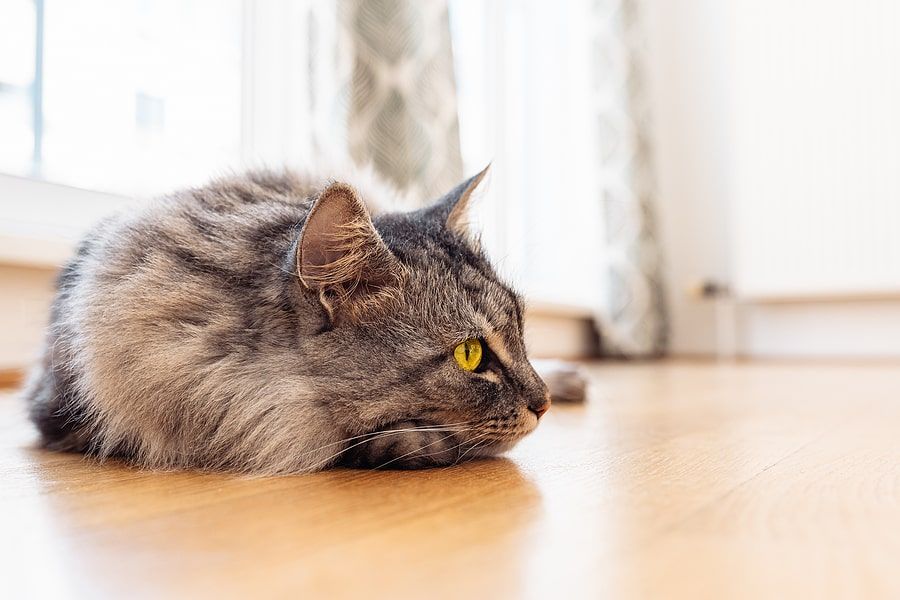Why is My Cat Vomiting?
The sound a cat makes when it is about to vomit is unmistakable. And the thing is, many people don't have a good perception of how often cats should be vomiting (it's not that often).

For a long time, the common thinking was that cats lost their lunch more than most animals. Come to find out, that's not true. Yes, cat hairballs are a real thing. But that's different from vomiting.
If you have a cat that regularly vomits, that isn't normal and could be a sign of an underlying condition. We're here to put some common misconceptions to rest and to teach you what you need to know about your cat and what vomiting could mean for their health.
It's not normal
Household pets typically vomit more than humans do. To be fair, they are far less discerning about what they put in their bellies. That doesn't mean they should be throwing up all the time, though.
Throwing up a couple of times a month is typical. However, if your cat vomits once a day or more, something could be wrong with your pet. If this is the case, you should seek veterinary assistance right away. If your cat vomits more than a couple of times a month, you probably should schedule an appointment with the vet.
Regurgitation and coughing
You'll want to make sure that you aren't mistaking cough or regurgitation for vomiting.
The sound of a cat coughing can sound like a cat vomiting, but you will notice that when they make this noise, nothing comes out of their mouth.
Regurgitation, on the other hand, is a very quiet process that actually does produce phlegm from the mouth. There is no need to be alarmed if your cat regurgitates, as this is a passive and standard process for cats. If you are concerned about regurgitation, try feeding your cat smaller meals.
Things to consider
If your cat is constantly vomiting, it's time to pay more attention to their environment and diet. Vomiting might signal that something more serious is happening. For instance, if your cat is losing weight and/or not eating and still vomiting, it is time to get to the vet immediately.
If you have multiple cats, look for environmental cues. Is it just one of your cats vomiting regularly, or is it all of them? If it is all of them, the culprit is likely a toxin in your home.
After eating
If your cat vomits after eating, it might not necessarily be a sign that something is wrong with your cat. It could be a sign that they are either overeating or eating way too fast.
If they are eating too fast, you can get an item called a slow feeder that slowly dispenses food, preventing them from eating too quickly. These are generally used with dogs but work great with cats as well.
If that doesn't fix the problem, reduce the amount of food you are giving your cat.
Check the color
The color of the vomit can give you an indication of what is going on with your cat. However, it is not an entirely accurate way to diagnose a problem with your pet. The best course of action is to note the color of the vomit and let your vet know. Different color vomit usually means different things.
Yellow - Yellow vomit can mean that the cat is malnourished or anorexic.
White - White vomit can indicate that a cat's small intestine is inflamed.
Clear liquid - There is a range of possibilities with clear liquid vomit. It could be something as simple as your cat drinking too much water or something as serious as diabetes or kidney failure. A call to your vet can quickly clear this up!
Brown -Brown vomit can signify that your cat is bleeding internally. In fact, a cat vomiting blood can come out in several colors, from red to brown to black. There is a myriad of reasons that this occurs, and you should consult your vet right away.
Your vet will most likely run a cat food allergy test to ensure your cat's diet isn't causing the problem. From here, you can come up with a plan for a happier and healthier kitty.
If you are concerned for your cat or have any questions, please contact Forever Vets today.


